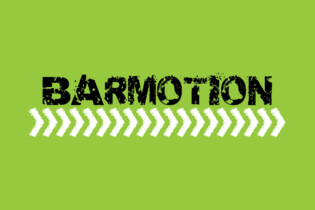South Africas national minister of Tourism said yesterday that the countrys tourism industry has much to celebrate in spite of the global economic situation. Minister Marthinus van Schalkwyk was talking at the start of the second day of SATTIC 2012 the first ever South African Tourism and Travel Industry Conference.
SATTIC has been organised by the Tourism Business Council of South Africa (TBCSA), the Association of South African Travel Agents (ASATA), the Federated Hospitality Association of Southern Africa (FEDHASA), the National Accommodation Association of South Africa (NAA-SA), the Southern African Vehicle Rental and Leasing Association (SAVRALA), and the Southern African Tourism Services Association (SATSA).
The Minister said that travel and tourism is the third largest industry in the world: smaller only than the financial and banking sector and the communications and education sector. In this global context, our countrys reputation as a premier global leisure destination is firmly established. We are growing steadily, and we have taken lessons from the economic downturn. We understand that we have to balance domestic, regional, and long-haul arrivals, as well as leisure and business tourism. We further realize that we must invest in the growth markets of the future as economic conditions in the traditional markets can change very quickly.
He said that South Africa is ranked 34 overall in the World Economic Forums 2010-11 Global Competitiveness Report the highest ranked country in sub-Saharan Africa. During the last five years, our country has outpaced the growth of all competitor locations in the leisure arrivals category. Foreign direct spend in rand terms has grown faster than arrivals, with an 11% per annum growth rate.
South Africas tourism industry has also managed to build on the momentum achieved during a record-breaking 2010 by growing an additional 3.3%, and attracting over 8.3 million international tourists in 2011. So in the near term, we remain cautiously optimistic about growth in international arrivals.
President of the International Council of Tourism Partners and keynote speaker Professor Geoffrey Lipman whom Minister van Schalkwyk called the doyen of international tourism professionals said that he believes that, the WEFs ranking aside You are one of the most attractive destinations on the planet; with a huge potential for sustainable growth; with natural assets that are increasingly in the mainstream of experiential consumer demand; with globally quite unique products; a committed, collaborating industry and thats an important piece of the jigsaw, because all over the world, the travel and tourism industry is perhaps one of the most fragmented and the fact that you have created this joint initiative [SATTIC] bodes very well for your future.
You have a great vision in your national strategy; and you have a minister whos ceaseless advocacy for coherent, joined-up public and private sector strategies is unique in the world. You have a great potential to be among the most competitive, and to achieve your goal of being in the World Economic Forum top 20 by 2020. But, he said, it will take a dramatic, almost simultaneous focus on strategy and tactics, to link aspiration and reality. He said, though, that 2020 must bee seen as a milestone, and that the work has to incorporate the next generation by asking young people how they see the issue of global competitiveness, and how they would address it.
In a recorded address to the conference, David Scowsill, the president and CEO of the World Travel and Tourism Council, said that his message is simple: We have to speak with one voice public and private sector together. The Global Leaders for Tourism campaign known as the Golden Book is a clear demonstration of the success [of creating partnerships].
We have signed up twenty eight country leaders who have publicly recognised the economic importance of travel and tourism to their economies. But, he said, the industry needs to broadcast its position as the worlds third largest economic sector more forcibly in terms which make governments and leaders sit up and listen. This is an economic growth and jobs cause. The response that the secretary general [of the UN World Tourism Organisation] and I received to the call for an industry coalition approach has been magnificent. International organisations and associations have recognised the need to work together. We can no longer go it alone. He said that, working with the private and public sectors, the WTTC and the UNWTO will ensure one voice to deter more taxation, to fight visa bureaucracy, to apply sustainable principles, and to power our growth.
Delegates and speakers enjoyed open, frank and sometimes even confrontational discussions, but the general opinion of the conference is that these are both necessary and healthy.
The plenary session on skills training was particularly heated, with speakers from the CATHSETA (Culture, Arts, Tourism, Hospitality, Sports and Recreation Sector Education and Training Authority) calling the industry out on its apparent lack of investment in training, and the industry asking if the SETA was ensuring that training was both appropriate and of the correct standards although one speaker did note that the national tourism skills training standards are due for their regular, three-yearly review.
In fact the theme of competitiveness ran through all the deliberations of the day: in the session on South Africas value proposition as a destination, in the discussions about skills development, and in the plenary on whether South Africa is getting its correct share of tourism arrivals.
Domestic tourism has also been high on the agenda, and the conference recognised the challenge of creating a tourism culture in a country where the majority of citizens havent experienced leisure tourism. One query coming out of this session was whether it would be viable for government or the private sector to set up holiday camps of the style that kick started the European tourism economy after World War II. Commenting on this idea, Minister van Schalkwyk said that our unique history be used to justify governments involvement in such projects but that they would have to be managed by the private-sector.
The South African Travel and Tourism Industries Conference will continue today with discussions on subjects like the domestic tourism debate; opportunities in marine tourism and maritime leisure; opportunities for tourism presented by social media; and opportunities for tourism in sports and events. A final plenary titled What does success and winning look like: Implementing the National Tourism Sector Strategy will begin at 15:15.
Follow the proceedings on Twitter using the hashtag #SATTIC






